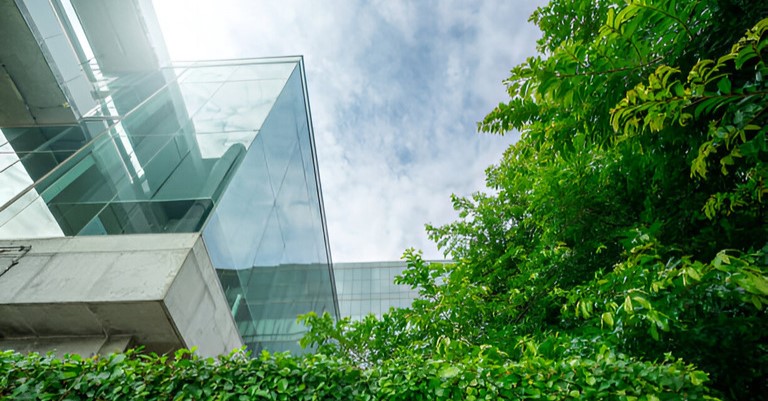When it comes to sustainability, Saudi Arabia is putting the pedal to the metal, or should we say the sun to the panel? With 2024 wrapping up, ESG initiatives in Saudi Arabia are not only turning heads but also setting benchmarks for the rest of the Middle East. If you’re curious about the future of green energy, social reform, or corporate governance, the kingdom’s ambitious plans are worth a deep dive.
Let’s explore how ESG Saudi Arabia is leading with four bold sustainability initiatives, backed by the latest 2024-2025 data, plus how companies like Insights KSA can help you leverage these monumental changes. Spoiler: it’s not just about oil anymore.
Initiative 1: Mega Investments in Renewable Energy
Saudi Arabia is rewriting the playbook on renewable energy with jaw-dropping investments totaling $266 billion as part of Vision 2030. The audacious goal? To achieve 50% renewable energy output by 2025, a seismic leap from the 11% recorded in late 2024.
ESG consulting companies are playing a pivotal role in shaping this transformation, ensuring sustainable strategies underpin these ambitious initiatives.
NEOM Solar Farms, operational since December 2024, are generating 5 GW annually, showcasing a future that’s not just bright but blazing. Meanwhile, the NEOM Green Hydrogen Company hit its first milestone with a pilot output, proving that clean hydrogen isn’t just a buzzword but the cornerstone of energy transition. By 2025, this plant is set to be a global benchmark in hydrogen innovation, guided by the expertise of leading ESG consulting firms.
Additionally, renewable energy capacity soared to 41 GW in 2024 from 27 GW in 2022, reducing fossil fuel dependency by 21% compared to 2020. The collaboration between Saudi Arabia and UAE to co-develop offshore wind farms and align policies ensures the region’s future is not just sustainable but unstoppable.
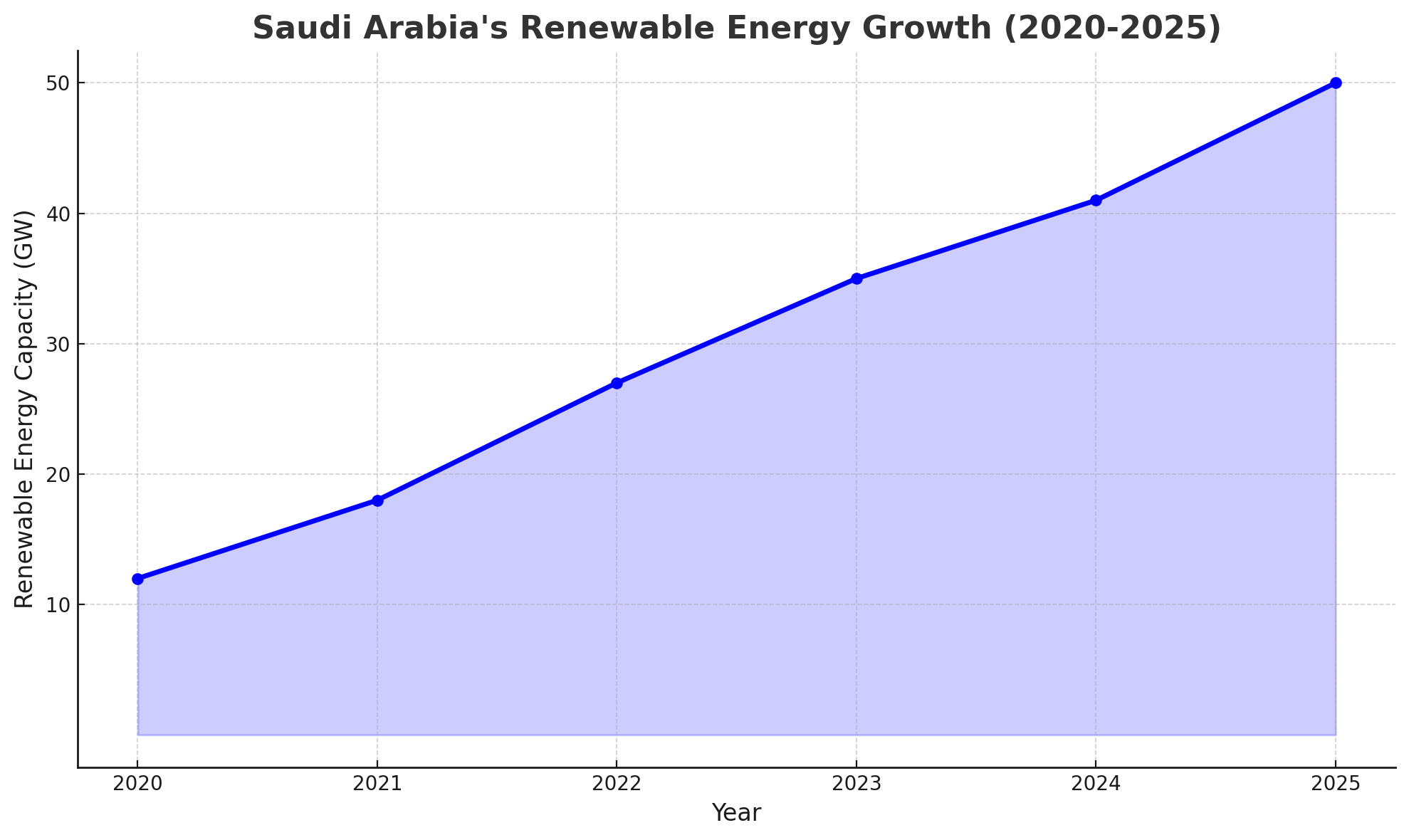
Initiative 2: ESG-Driven Corporate Reforms
Corporate Saudi Arabia is going through an ESG reporting makeover that’s as much about innovation as it is about regulation. The Public Investment Fund (PIF) is at the heart of this transformation, insisting that portfolio companies don’t just talk about sustainability and ESG—they deliver on it. In 2024, this mandate led to the introduction of the ESG Saudi Arabia Index, which ranks 100 firms on sustainability metrics like carbon footprints, employee diversity, and ethical governance practices.
And no, it’s not just about ticking boxes. By the end of 2024, 87% of companies listed on the Tadawul stock exchange had published ESG reports, up from just 39% in 2020. That’s not a trend; it’s a seismic shift. Companies are slashing emissions, with corporate carbon footprints dropping by an average of 18% since 2022. At the same time, women and minorities now make up 30% of corporate boards, smashing through the glass ceiling with an impressive 12% increase in diversity compared to 2020.
But hold on—is this real progress or just corporate greenwashing? Critics might ask. The numbers don’t lie. For example, PIF-backed firms like Saudi Aramco and Almarai have not only reduced emissions but also implemented zero-waste policies, proving that profitability and sustainability and ESG can go hand in hand.
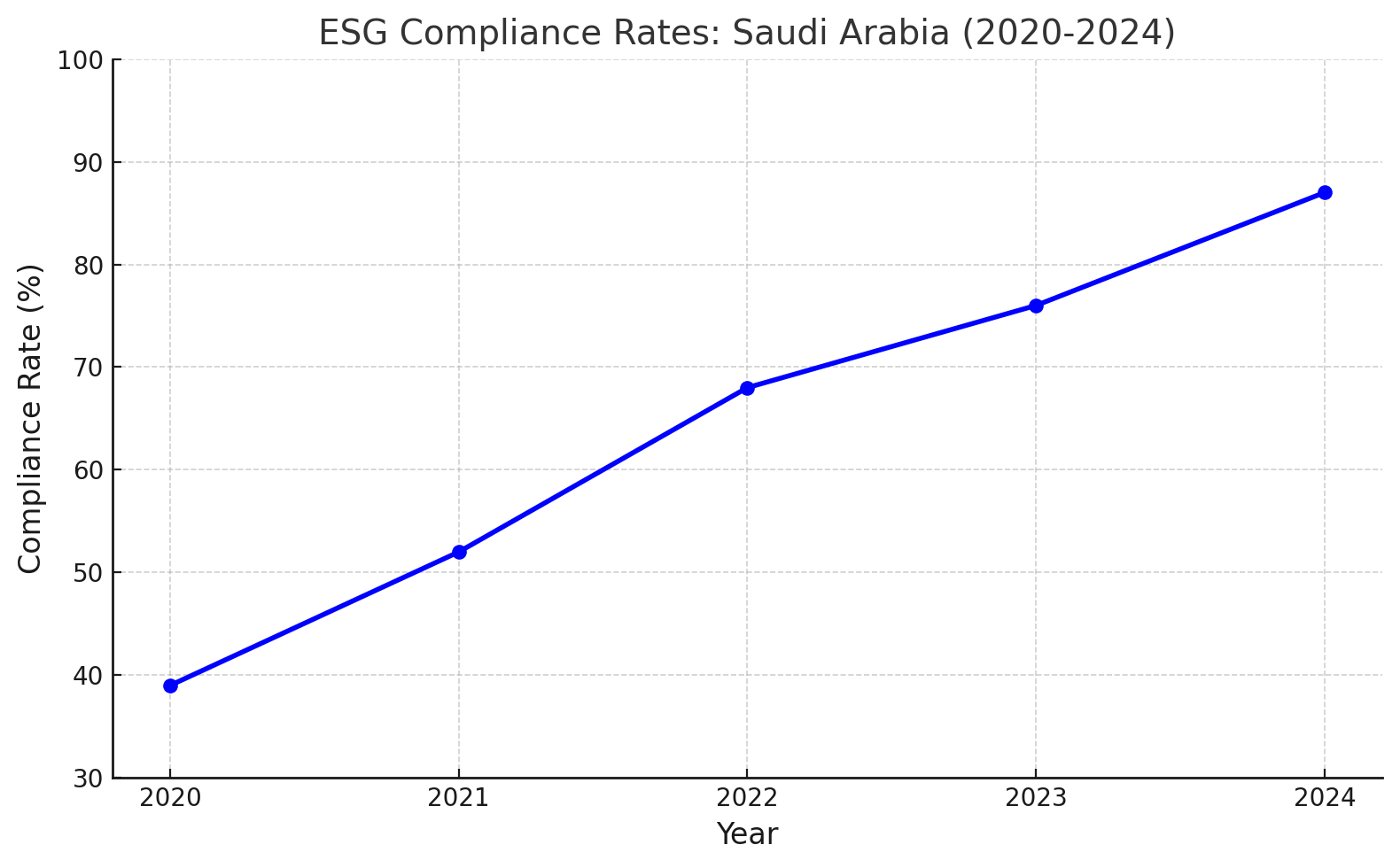
Want a technical twist? Blockchain technology is now being deployed to track ESG metrics in real-time. By integrating distributed ledger systems, companies can verify the authenticity of their sustainability claims, making it nearly impossible to fake green credentials. It’s transparency on steroids, and Saudi Arabia is leading the way in the Middle East.
Meanwhile, this ESG transformation isn’t confined to mega-corporations. SMEs are also catching up. Over 2,000 small and medium enterprises adopted new ESG frameworks in 2024, with most using cloud-based solutions to simplify compliance. From tracking water usage to measuring energy efficiency, these digital tools are democratizing access to sustainable business practices.
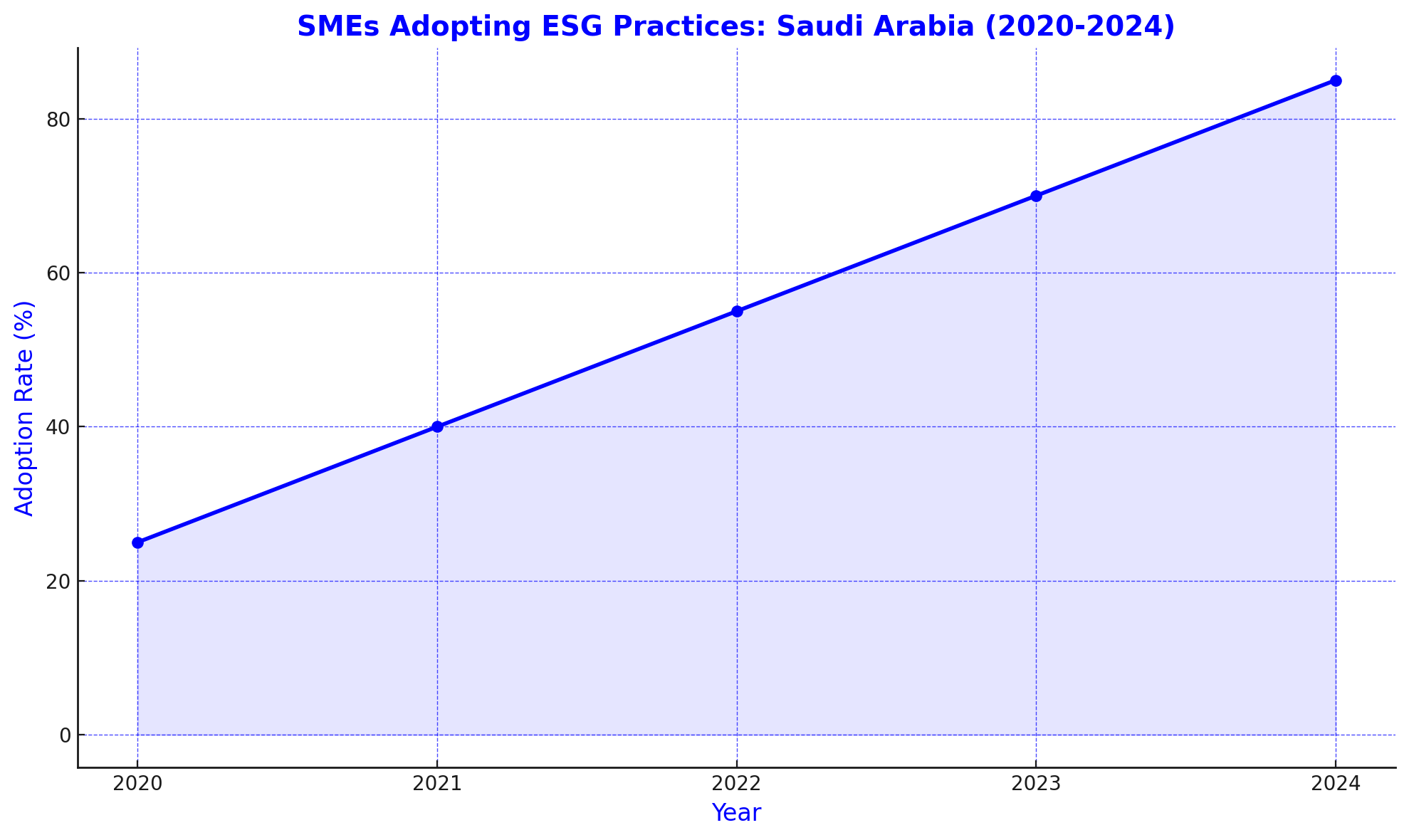
This isn’t just reform; it’s a revolution. And with ESG becoming a competitive advantage, companies that ignore the call for sustainable governance are risking irrelevance.
Initiative 3: Community-Centric Social Reforms
Social sustainability has gone from buzzword to battle cry in Saudi Arabia, and 2024 was a pivotal year. The kingdom’s focus on community-centered reforms has transformed the lives of millions, setting benchmarks for inclusivity, education, and economic equity.
Women have been leading the charge in this new era. By the end of 2024, women held 26% of leadership roles in Public Investment Fund (PIF)-backed companies, a staggering leap from just 10% in 2020. The kingdom also distributed SAR 1.3 billion in grants to support 5,000 youth-led start-ups, fostering an entrepreneurial spirit that’s set to redefine the economy.
And it’s not just about top-down initiatives. Grassroots efforts like vocational training programs benefited over 400,000 Saudi citizens in 2024 alone, with a significant portion aimed at integrating women and young people into the workforce. Meanwhile, flexible work policies introduced this year empowered 1.2 million gig workers, creating unprecedented economic opportunities across urban and rural regions.
Here’s the kicker: Saudi Arabia is pairing these social reforms with tech-driven solutions. The government’s new Digital Citizen Inclusion Platform uses AI to track social equity metrics in real time. From monitoring access to education to evaluating employment rates across demographics, the data ensures accountability and helps identify areas for improvement.
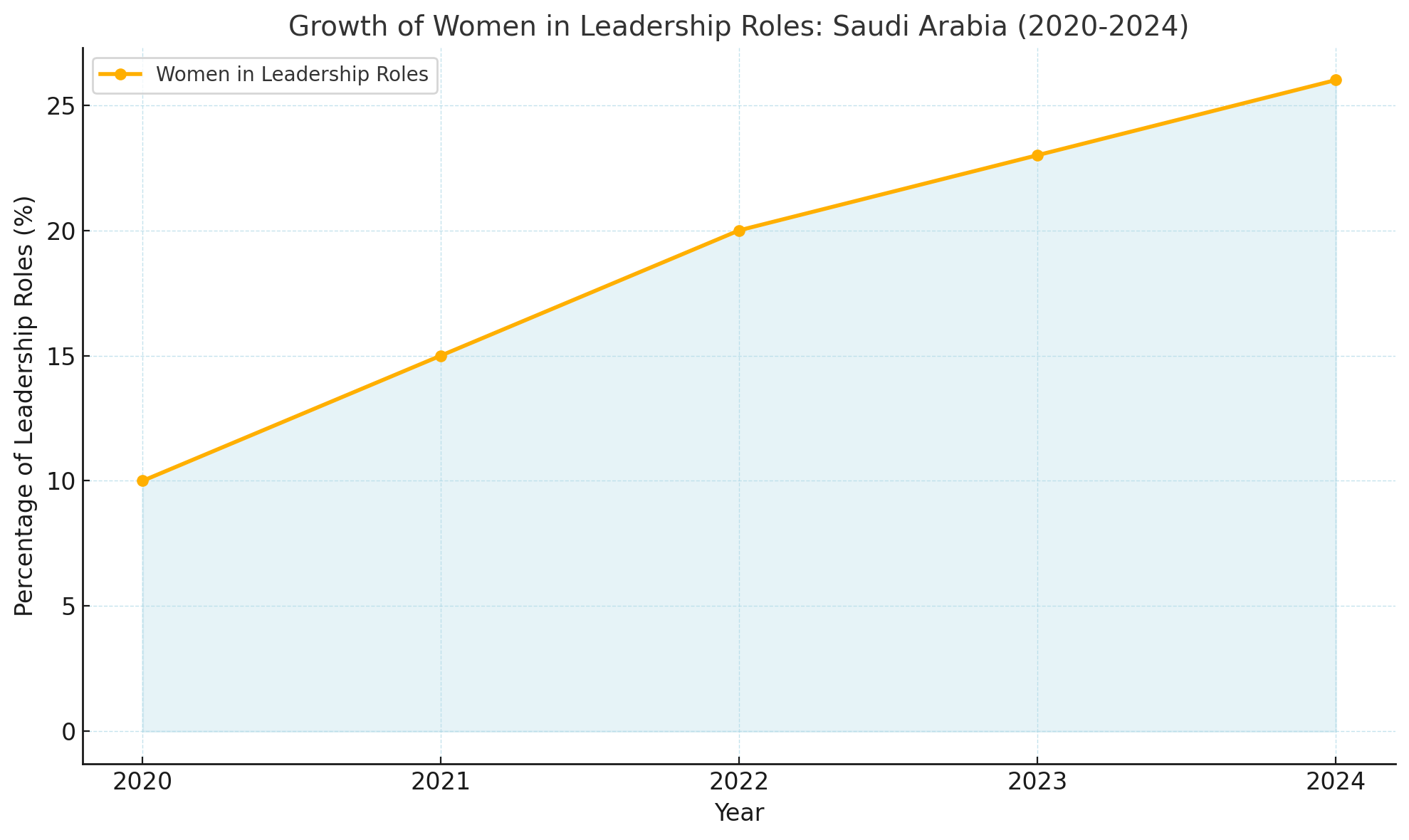
The results speak for themselves. Literacy rates among women aged 18-25 have climbed to 98%, while unemployment among Saudi youth dropped by 6% in just two years. Programs targeting SME development saw a 35% increase in participation, creating a ripple effect that’s reshaping local economies.
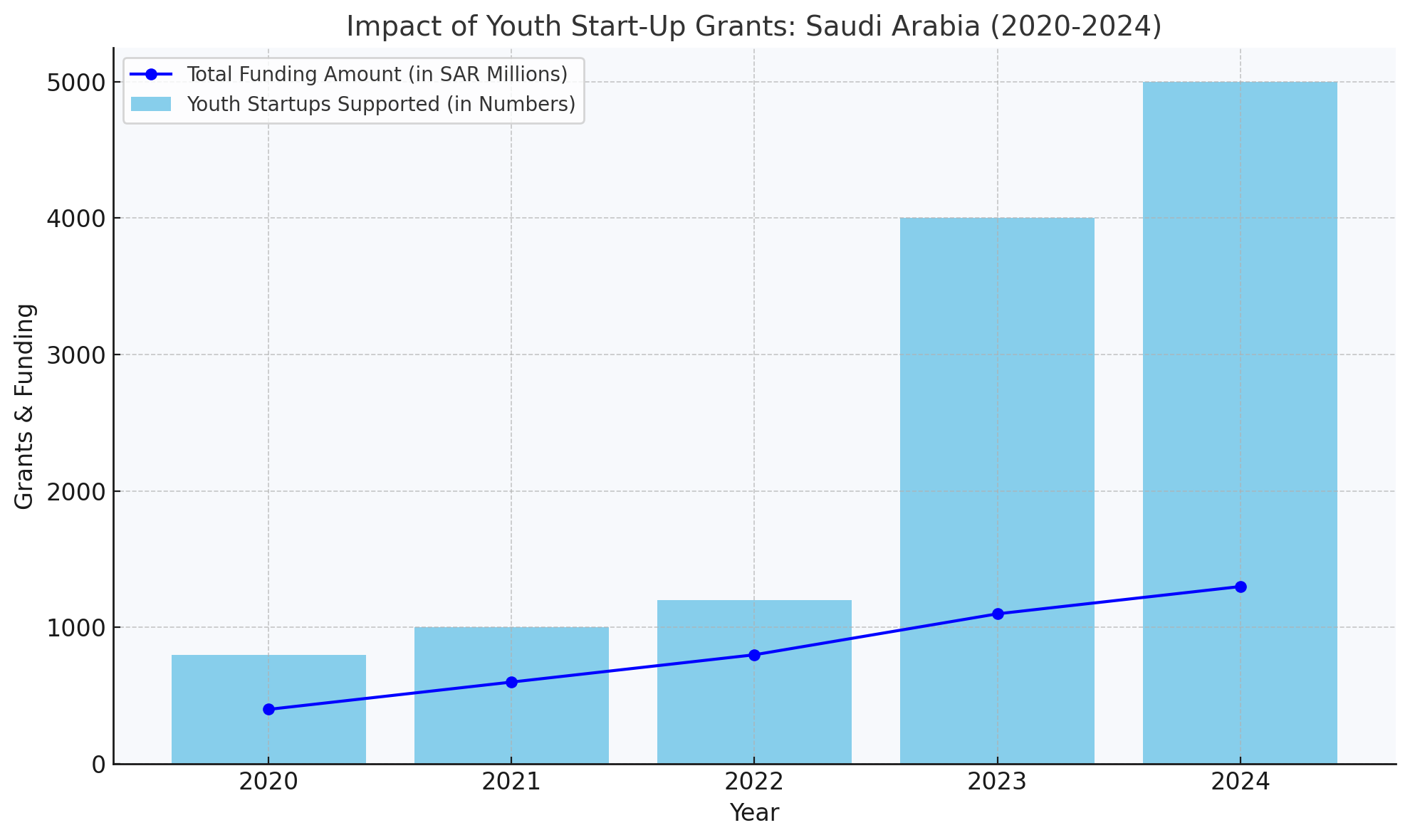
If you’re wondering whether these reforms are scalable, the answer is a resounding yes. With a clear framework and measurable outcomes, Saudi Arabia is crafting a blueprint for the region. It’s not just about inclusion; it’s about empowerment, and the numbers prove that this strategy works.
Initiative 4: Nature-Based Solutions (NBS)
Saudi Arabia’s approach to environmental sustainability isn’t just ambitious—it’s game-changing. The Saudi Green Initiative (SGI) is the centerpiece of these efforts, blending cutting-edge technology with centuries-old ecological wisdom. By 2024, the kingdom had planted over 2 billion trees, an astounding leap toward its goal of 10 billion trees by 2030. But is this just a massive PR campaign? The numbers suggest otherwise.
In 2024 alone, Saudi Arabia restored 18 million hectares of degraded land, an area roughly the size of Cambodia. This land rehabilitation isn’t just about aesthetics; it’s about boosting biodiversity and creating natural carbon sinks. Speaking of carbon, the kingdom’s efforts have sequestered approximately 110 million tons of CO2 this year, a 15% increase compared to 2023.
Marine ecosystems are also getting a much-needed lifeline. The Red Sea Coral Reef Project entered its second phase in 2024, aiming to protect 30% of marine habitats by 2025. Leveraging AI-powered monitoring systems, the project ensures real-time tracking of coral health, making it one of the most advanced marine conservation efforts globally.
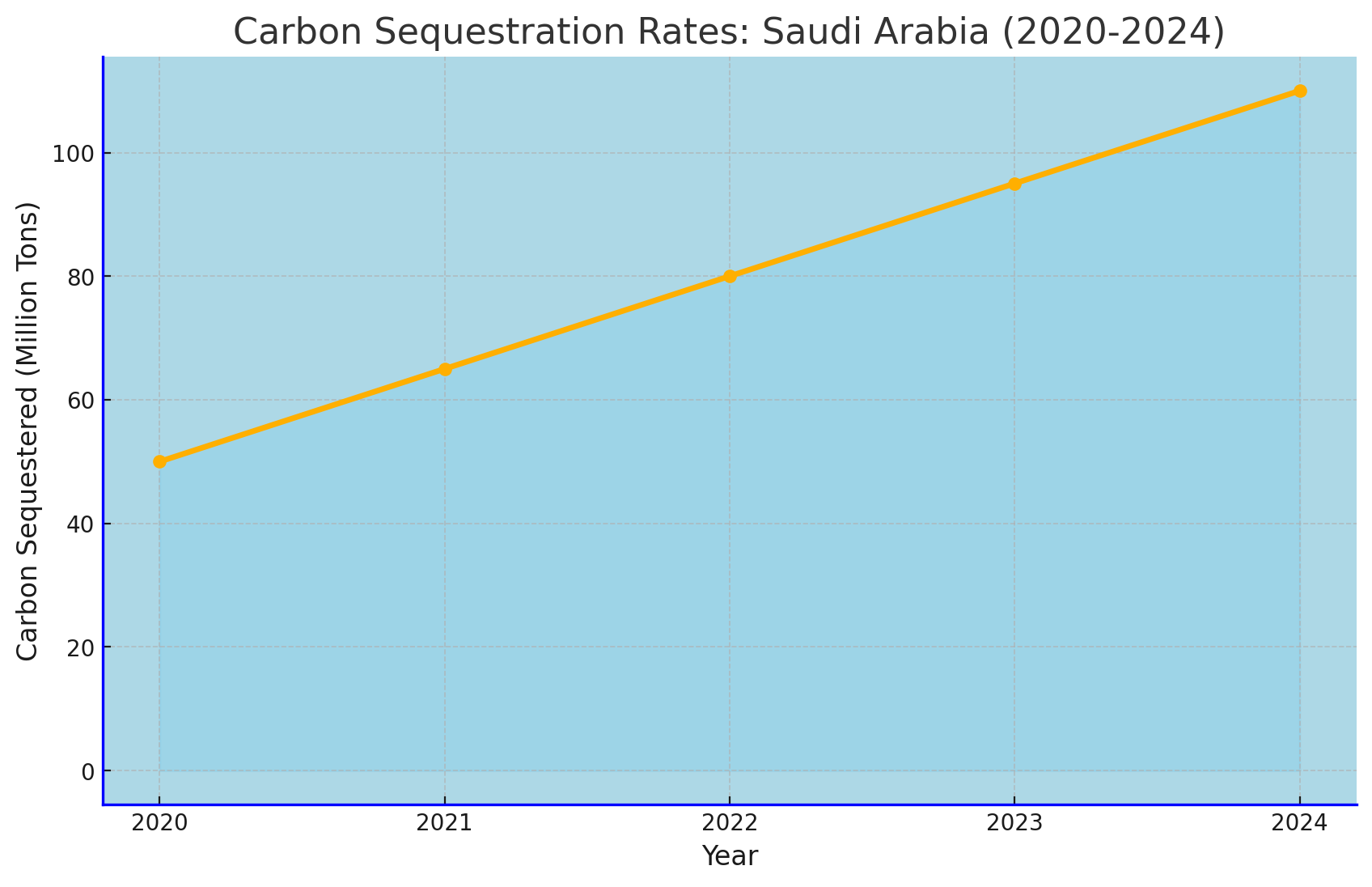
And the tech doesn’t stop there. Saudi Arabia has partnered with leading global firms to deploy drones for reforestation. These high-tech drones planted over 15 million saplings in remote areas in 2024, achieving in months what would traditionally take years. The use of IoT sensors in these regions helps monitor soil health, ensuring the trees thrive.
Water scarcity, a perennial issue, is being tackled head-on. The SGI’s Desert Greening Initiative has pioneered water-efficient agricultural techniques, resulting in a 40% reduction in water usage for afforestation projects compared to 2020 levels. This isn’t just good for the environment; it’s a blueprint for arid regions worldwide.
Perhaps the boldest move of all is Saudi Arabia’s commitment to making nature-based solutions profitable. Through carbon credit trading, the kingdom generated over $200 million in 2024 alone, reinvesting these funds into further sustainability projects. By combining ecological restoration with economic incentives, Saudi Arabia is showing that green can also mean gold.
So, the question remains: Can Saudi Arabia’s NBS blueprint be replicated elsewhere? The answer is an emphatic yes. With measurable outcomes, cutting-edge technology, and robust financial backing, the SGI is setting a global standard for nature-based solutions that are both scalable and impactful.
The Saudi Angle: Why ESG Saudi Arabia Matters to You
Saudi Arabia isn’t just a spectator in this sustainability race. As the Kingdom forge stronger economic ties, ESG Saudi Arabia becomes more than a case study; it’s a shared vision. From co-investing in green energy projects to adopting similar corporate reforms, Saudi Arabia’s own sustainability journey will significantly impact the UAE’s trajectory.
How Insights KSA Can Be Your Game-Changer
Here’s how Insights KSA helps you navigate the evolving ESG landscape in the Saudi market:
- Market Insights: Gain a deep understanding of the Saudi market with proprietary tools that analyze key trends, regulatory developments, and investor expectations.
- Customized Strategies: Develop bespoke ESG strategies tailored to your specific business goals and risk profile, aligning with Saudi Arabia’s Vision 2030 and international best practices.
- Compliance Expertise: Ensure seamless adherence to Saudi Arabia’s evolving ESG regulations, minimizing compliance risks and maximizing your sustainability impact.
- Strategic Partnerships: Connect with key stakeholders, government agencies, and local partners to foster collaborations and amplify your ESG efforts within the Saudi market.
- Innovative Solutions: Leverage cutting-edge technologies like AI, IoT, and blockchain to drive innovation and achieve measurable sustainability outcomes in the Saudi context.
From strategic planning to on-ground execution, Insights KSA empowers your business to thrive in the Saudi market by transforming ESG challenges into valuable opportunities.
Looking Ahead: 2025 and Beyond
As 2025 approaches, ESG Saudi Arabia shows no signs of slowing down. With $3 trillion in projects tied to Vision 2030, the stakes are high—and so are the opportunities.
So, are you ready to embrace the future? With Insights KSA by your side, the answer should be a resounding yes.

